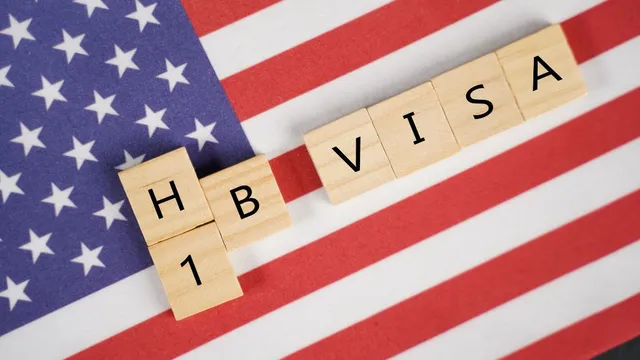- By Shivangi Sharma
- Sun, 18 May 2025 11:42 PM (IST)
- Source:JND
The H-1B visa program allows US employers to hire foreign professionals for specialised roles, particularly in fields like technology, engineering, and healthcare. The process involves a variety of fees and legal requirements that both employers and prospective H-1B workers need to understand. Most of the financial burden of the H-1B visa falls on the employer. The process begins with registration for the H-1B lottery, which costs USD 215 per beneficiary. If selected, the employer must file Form I-129, which carries a USD 780 fee, or USD 460 for small businesses and nonprofits.
Beyond this, additional mandatory fees include:
- ACWIA Fee (American Competitiveness and Workforce Improvement Act):
USD 1,500 for companies with 25 or more employees
USD 750 for companies with 25 or fewer employees
- Fraud Prevention and Detection Fee: USD 500 for initial filings and employer changes
- Labour Condition Application (LCA): No direct fee, but a critical compliance step requiring certified documentation on wage standards and working conditions
Worker Wage Requirements
Employers must pay H-1B workers the “required wage”, which is the higher of the actual wage (paid to similar workers at the company) or the prevailing wage (for that occupation and location). This ensures wage parity and prevents undercutting the US labour market.
Wage compliance is essential throughout the employee’s tenure, including during non-productive periods, such as project delays or lack of assignments.
ALSO READ:Russia Launches Largest Drone Attack Since War Began; Hits Ukraine With 273 Drones Amid Peace Talks
Additional Costs And Options
- Premium Processing: Employers or employees can pay USD 2,805 for 15-day expedited USCIS processing. If the employee pays, the employer must justify the necessity for fast processing.
- Attorney Fees: Many employers hire immigration attorneys, adding USD 1,000–USD 4,000 in legal costs.
- Optional Benefits: Employers may provide health insurance, relocation support, or travel costs. Any deductions from the employee’s wages must follow strict legal guidelines.
- Self-Sponsorship: In rare cases, individuals can sponsor themselves through a company they own, provided it meets strict legal and financial criteria.
Employee Responsibilities
While most fees are employer-paid, the MRV visa fee of USD 205, payable to the US Department of State, is the applicant’s responsibility. This is paid before attending the visa interview at a US consulate. Some employers may voluntarily reimburse it, though they are not required to.
H-1B Cap
The annual cap limits H-1B visas to 65,000 regular petitions, with an additional 20,000 reserved for those with advanced US degrees. Some nonprofit and educational organisations are exempt. Before filing, employers must obtain required certifications, affirming their commitment to fair wages and workplace standards.

